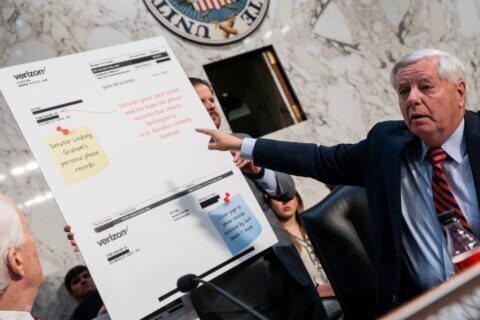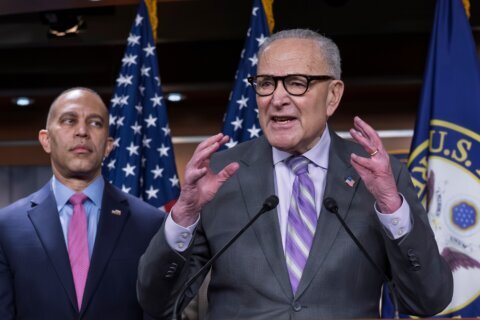The debate on transgender and abortion protections has percolated in recent months as a challenge to the Affordable Healthcare Act awaits a ruling, a workplace discrimination case focused on transgender rights sits before the Supreme Court and multiple state abortion restrictions make their way through the courts.
The Trump administration is also working to explicitly roll back other protections for transgender people and abortion seekers.
Here are three federal court cases offering a glimpse of the administration’s long term goals to restrict reproductive health care protections:
Obamacare protections
On Tuesday, a federal judge overturned an Obama-era rule requiring federally funded health care providers to treat transgender people or women who have had or are seeking abortions, arguing that it violates religious freedom laws. The rule has been tied up in litigation and never took effect.
US District Judge Reed O’Connor decided this week that the rule violates the Religious Freedom Restoration Act, a 1993 law that prohibits government agencies from infringing on people practicing their religion, setting up a further court challenge.
Under President Donald Trump, the Department of Health and Human Services has opted not to defend the new rule. HHS wrote in April that it had since found that the rule conflicts with recent Justice Department guidance that protections from discrimination based on sex do not apply to gender identity.
O’Connor granted the American Civil Liberties Union of Texas and River City Gender Alliance, two groups that had defended the rule following HHS’ shift, the ability to defend the rule in the lawsuit.
The Affordable Care Act bans discrimination based on sex and other characteristics in federally funded health care programs and activities. Some judges, including in Wisconsin and Minnesota last year, have found that gender transition should be covered by anti-sex discrimination statutes.
New Trump conscience rule
On Friday, a federal judge in New York heard oral arguments in two lawsuits challenging the Trump administration’s so-called “conscience” rule, which protects health care workers who cite moral or religious reasons in opting not to provide certain medical procedures such as abortion, sterilization and assisted suicide.
The HHS rule also notes that complaints about performing sterilization surgeries related to gender dysphoria — the diagnostic term for the distress transgender people can feel over the conflict between their gender and the sex they were assigned at birth — will be considered on “a case-by-case basis.”
Reproductive rights advocates argue that the rule will hurt those seeking reproductive care and in the LGBTQ community, with the idea of religious liberty being used to justify endangering patients and will negatively affect the health of women and transgender patients.
The rule, which has already been delayed from going into effect until November 22, has drawn eight challenges across four different federal district courts filed by a slew of different states and reproductive health groups. HHS unveiled the rule last year, and Trump announced the final rule in May.
Title X rule change
In September, an 11-judge panel heard arguments on a controversial HHS rule prohibiting taxpayer-funded family planning clinics from discussing abortion with patients or referring patients to abortion providers.
The change would impact the Title X program, which provides family planning services to about 4 million people a year, according to HHS.
HHS says that eliminating the requirement shields providers from “violating their own consciences by providing abortion counseling and referral.” Critics contend the regulations would mostly affect communities of color, low-income people, the uninsured and rural residents.
The abortion referral rule could also have implications specifically for LGBTQ patients. Should the rule go into effect, “the results will be devastating not only for the country as a whole, but for LGBTQ people in particular,” a coalition of LGBTQ advocacy groups wrote in a brief submitted in July against the rule. “There will be a sharp reduction in family planning services, as well as the concomitant loss of critical health care services that these sites have developed to serve the LGBTQ community.”
Unlike the other measures, this rule is already in effect despite the pending legal challenges against it. After federal judges struck down the rule in several states, HHS appealed the rule in May to the Ninth Circuit Court of Appeals, where two separate panels of judges decided to allow it to go into effect while the lawsuit progressed. In July, HHS told program recipients that the rule was in effect despite the pending challenges.
Planned Parenthood, which says it covers 40% of Title X recipients, opted to pull out of the program after the court denied its emergency request to halt the rule.







